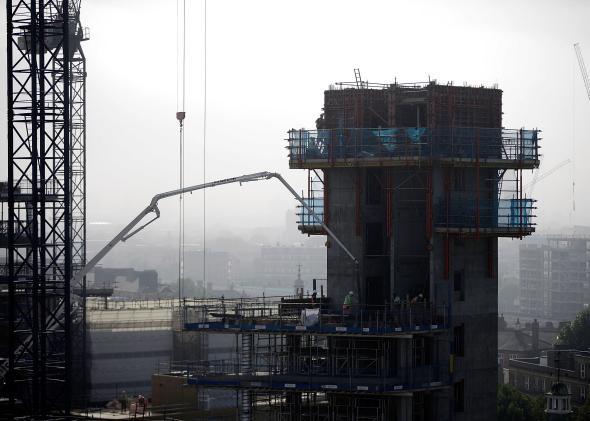The irony of the United Kingdom’s rather poor economic performance under Prime Minister David Cameron is that there’s a perfectly good case to be made that the country desperately needs a shot of supply-side economic reform. You see an example in the cute housing cost factoid flagged by Dan McCrum at FT Alphaville noting that the average London house grew in price last year by more than the average income of a London household: “It’s not quite at minimum wage yet, but London houses don’t sleep or take holidays, and earned £4.42 every single hour of the year to July.”
The underlying issue is that people really like owning homes in London. Not just English people. People from all over Europe and the world love owning homes in London. This ought to be an enormous source of national economic strength for the United Kingdom, but regulatory restrictions on the ability to add more housing units in the London area have turned it into a problem.
Liberalization of the construction market ought to start helping the British economy by creating a whole bunch of decent jobs in the building trades. It ought to continue helping the British economy by reducing the cost of London houses and boosting the real incomes of London residents. But it should also make it easier for residents of the more economically depressed portions of the United Kingdom to relocate to the more vibrant London area. Last but by no means least, accommodating a greater influx of foreign rich people should be an engine for further job growth in the service sector.
Every country’s fondest dream these days is to become an exporting and manufacturing titan. But even though “build houses and sell them to foreigners” doesn’t show up on the NIPA tables as “manufacturing” and “exports” it’s the precise same thing. You’re building stuff and you’re selling it to customers who want it. The difference is that successful exporters don’t put regulatory caps on the amount of new cars or computer chips that you’re allowed to build. In a place like London, by contrast, it’s very difficult to get permits to make new houses. Unleashing a little bit of the old free market dynamism on this sector of the U.K. economy is probably the single biggest boost it could get. But Cameron’s government seems much more interested in identifying structural reforms that will specifically damage the interests of poor people than in trying to find deregulatory measures that would kickstart growth.
Similar considerations all apply to New York City but with two key differences. One is that Greater London is a much larger share of the British economy than Greater New York is of the American economy. The other is that thanks to our pesky constitution, national politicians can’t actually rewrite snob zoning laws in North Jersey and Long Island or plaster the Lower East Side with skyscrapers. In the U.K., anything’s possible. They’re just not doing anything.
